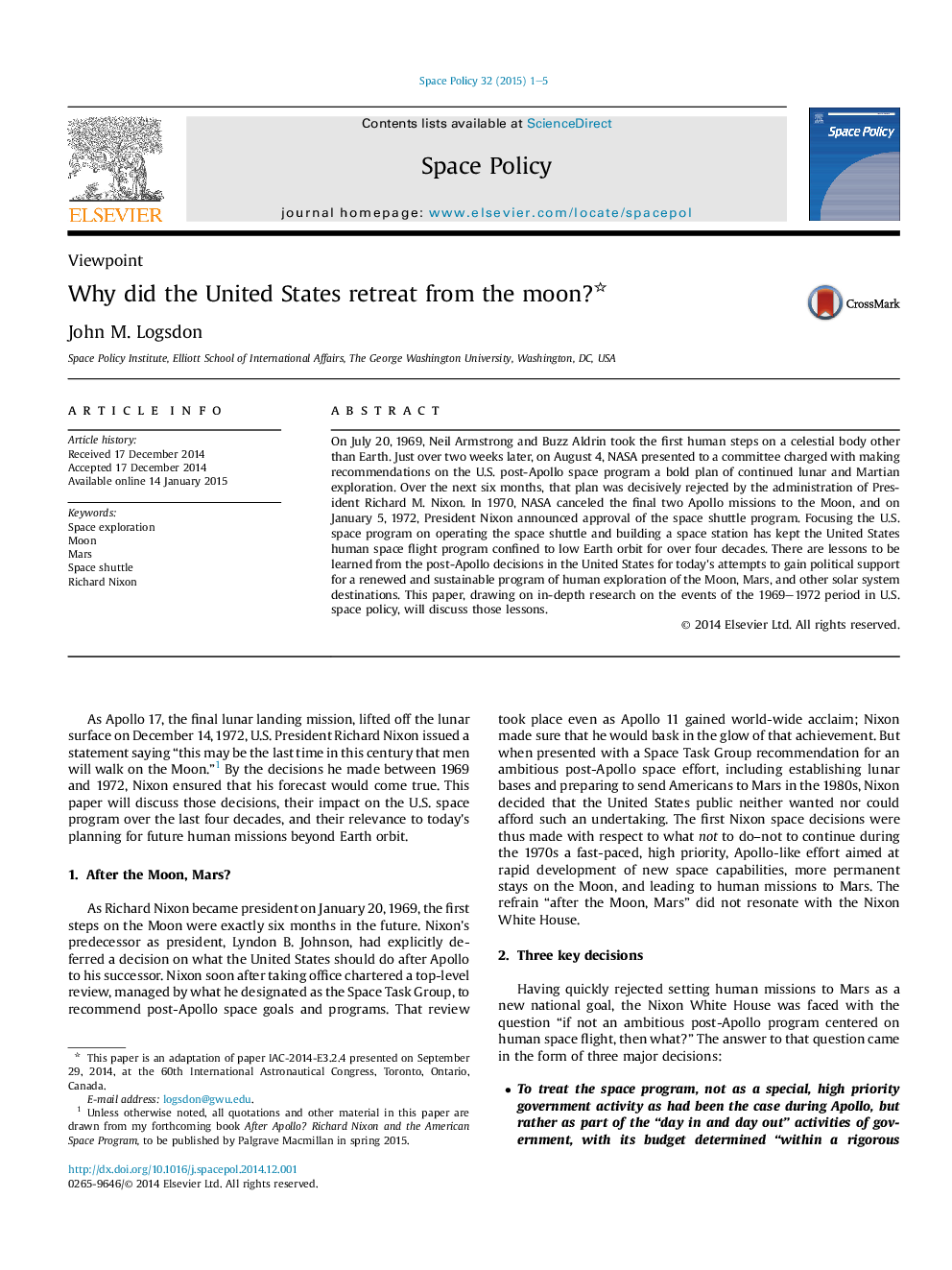| کد مقاله | کد نشریه | سال انتشار | مقاله انگلیسی | نسخه تمام متن |
|---|---|---|---|---|
| 1131278 | 1488880 | 2015 | 5 صفحه PDF | دانلود رایگان |
On July 20, 1969, Neil Armstrong and Buzz Aldrin took the first human steps on a celestial body other than Earth. Just over two weeks later, on August 4, NASA presented to a committee charged with making recommendations on the U.S. post-Apollo space program a bold plan of continued lunar and Martian exploration. Over the next six months, that plan was decisively rejected by the administration of President Richard M. Nixon. In 1970, NASA canceled the final two Apollo missions to the Moon, and on January 5, 1972, President Nixon announced approval of the space shuttle program. Focusing the U.S. space program on operating the space shuttle and building a space station has kept the United States human space flight program confined to low Earth orbit for over four decades. There are lessons to be learned from the post-Apollo decisions in the United States for today's attempts to gain political support for a renewed and sustainable program of human exploration of the Moon, Mars, and other solar system destinations. This paper, drawing on in-depth research on the events of the 1969–1972 period in U.S. space policy, will discuss those lessons.
Journal: Space Policy - Volume 32, May 2015, Pages 1–5
